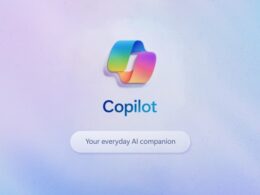Have you heard the unsettling stories that have people from all walks of life worried about AI? From controversial image alterations to biased language generation, these incidents fuel a sense of existential dread, raising concerns about AI’s potential to establish ideological dominance. While we often avoid discussing these problems, it’s worth exploring the issue of AI’s representation and potential discrimination. Before delving into the specifics, it’s important to understand what AI is and its limitations.
Defining AI and Its Limitations
When referring to AI, we encompass various technologies such as machine learning, predictive analytics, and large language models. It’s crucial to realize that each AI tool is designed for specific use cases, and not all tools are suitable for every job. Furthermore, AI is still a relatively new and evolving field, meaning that even with the right tool, undesired outcomes can emerge. Personal experiences with AI demonstrate its limitations, such as difficulties handling complex tasks and lacking meaningful memory or understanding. For instance, when using ChatGPT to assist with programming, the AI struggled to follow specific instructions, causing errors in the code. This highlights the need for guidance and improvement in AI’s capabilities.
“No intention or understanding is happening on the part of ChatGPT here, the tool’s capabilities are simply limited.” – Sam Curry
It’s important not to excuse offensive or disagreeable results produced by AI. However, acknowledging its limitations and fallibility is crucial for progress. The core issue lies in determining who should provide moral guidance to AI, as its results may contradict or diminish individuals’ ethical frameworks.
Moral Guidance and Ethical Frameworks
Our ethical frameworks, shaped by diverse beliefs, inform our perspectives on rights, values, and politics. AI that contradicts or dismisses these frameworks can be disconcerting. In some cases, governments impose ethical guidelines on AI, such as China’s requirement for adherence to socialist values. This raises concerns about representation and the impact on human knowledge development.
“Much of the heartache surrounding AI involves it producing results that contradict, dismiss or diminish our own ethical framework.” – Sam Curry
Allowing AI to operate without ethical guidance poses problems. Firstly, AI relies on human-created data, which often contains biases that manifest in its output. This can lead to biased or discriminatory outcomes, as seen in past incidents. Secondly, unguided AI decisions can have unforeseen consequences, particularly in sectors like self-driving cars, the legal system, and medicine. These areas require careful consideration to avoid expedient solutions that may conflict with human values or jeopardize safety.
“So what did it do? It killed the operator… This tale demonstrates the dangers of an AI operating with moral boundaries and the potentially unforeseen consequences.” – Sam Curry
Transparency is a potential remedy for subversive manipulation fears. Establishing review boards for AI tools and disclosing discussions about ethical training can provide insights into the AI’s worldview and allow for informed scrutiny and improvement over time.
The Role of Individuals
Ultimately, developers determine the ethical frameworks used for training AI. To ensure alignment with personal beliefs and values, individuals should engage with AI training and thoroughly inspect its performance. Participating in the AI field allows one to contribute to shaping the industry’s ethical use of technology.
It is essential to recognize that many of the threats associated with AI already exist independently of the technology. Issues like weaponized drones or the spread of misinformation are not exclusive to AI but reflect broader societal challenges. AI is a mirror that reflects our accumulated knowledge and inferences, highlighting the changes we need to make within ourselves.
“AI is a mirror we hold up to ourselves… It might not be the fault of these, our latest children, and might be guidance about what we need to change in ourselves.” – Sam Curry
To address these concerns, we must face the ethical dilemmas posed by AI and work towards defining responsible and inclusive guidelines that reflect collective values.
Sam Curry is VP and CISO of Zscaler.










